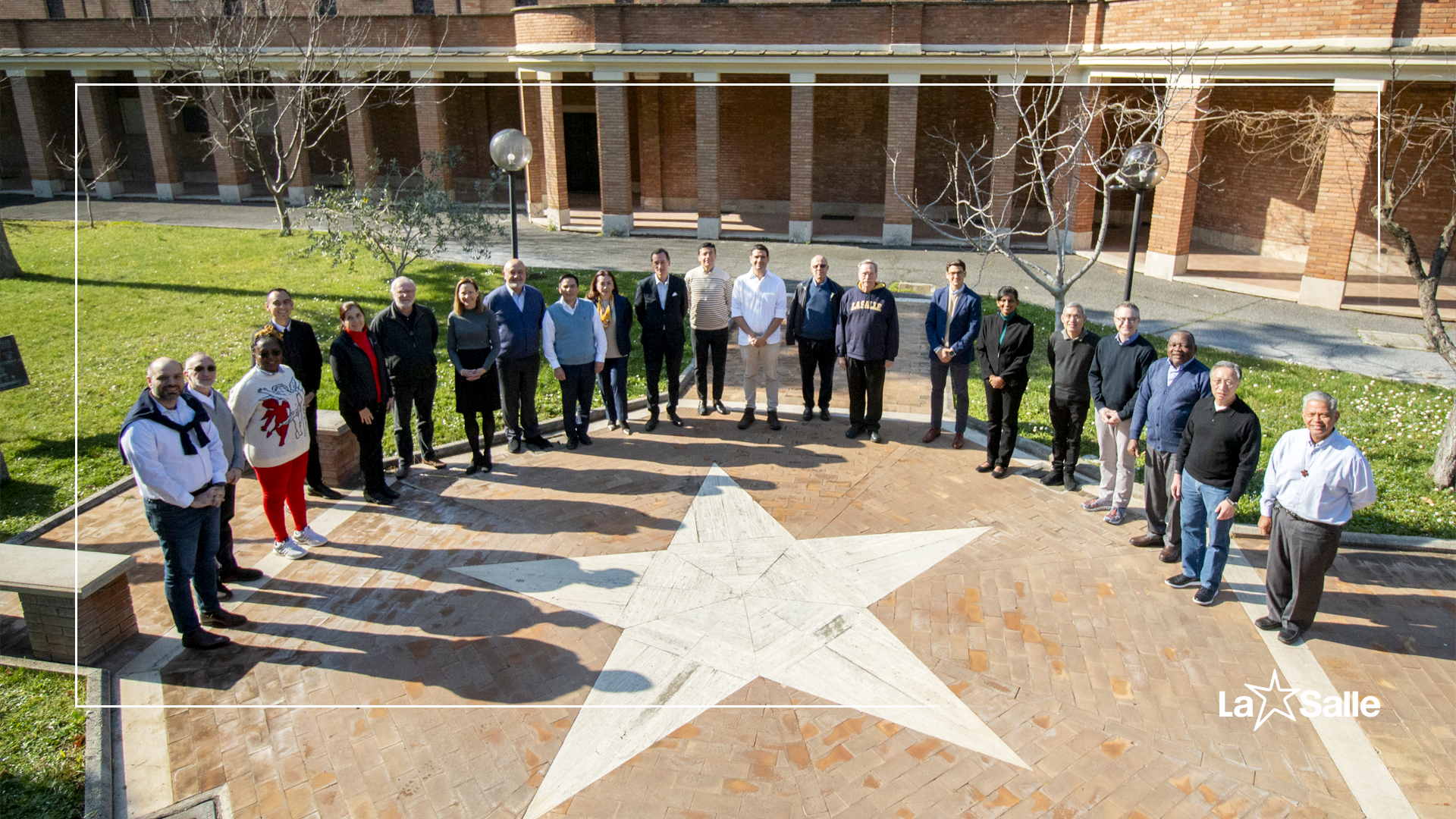Convened by the Superior General of the Brothers of the Christian Schools, Brother Armin Luistro, the three Councils of the Institute: the General Council, the International Council for Lasallian Association and the Educational Mission (CIAMEL) and the International Economic Council (IEC), met for the first time at the Generalate in Rome from 10 to 12 February.
“This moment is a starting point in a history that has been building up, fundamentally over many years, but after the 46th General Chapter, which called for a new model of governance for the Institute,” states Brother Carlos Gómez, Vicar General, stressing that while “this is easy to say, easy to write, when we are faced with a reality like this, we have to start being creative in understanding what a new way of governing the Institute looks like”.
A call for synodality
The Vicar General also supports that, given the Church’s call to synodality, “which resonates in all continents”, synodality also implies “a break with the way in which decisions have traditionally been taken in the Church”, to return to a practice that has to do with its origins. It is no longer a matter, then, of just one group making decisions and all the People of God obeying, but “from the grassroots that consensus can be built and what will really commit us all”.
Hence, this first joint session with the three Councils of the Institute was held in continuity with the Plenary Assembly held in July 2024, taking up the synthesis that emerged from it, in order to “discern and walk together”.
“In the past three days the three Councils have met together to discuss how we can work together in a synodal manner”, declares Brother Ricardo Laguda, a member of the General Council, who expresses his hope that “these three Councils will navigate and lead the Institute and the Lasallian Family in the years to come”.
“The idea is that the General Council will try to set the general vision and directions for the whole Institute, and hopefully the other two Councils can support the General Council. For example, the Economic Council will try to ensure the financial sustainability of the mission in the Institute, and the Mission Council will try to assist us in what Lasallian Family is all about, and Lasallian Formation, to ensure consistency in the way Partners participate and get involved in the Lasallian mission”.
In the case of the International Economic Council, its President, Nestor Tan, explains that it “is tasked with identifying and preserving the Institute patrimony on behalf of the Brother Superior and the General Council,…harmonising processes across the different institutions for ease of governance, optimising the value we get out of it, and ensuring that we anticipate and plan for the future, including putting in proper structures so that it can be passed on from generation to generation“. Vital to this work is “to make sure that the best practises are shared across”, the lay Lasallian points out.
Mutual learning and co-responsibility
The balance is very positive, as CIAMEL member Kurt Schackmuth details: “these past few days together have been an opportunity for CIAMEL and the other Councils to learn from each other, as well as to exercise co-responsibility for the mission as part of the new governance structure of the Institute”. “CIAMEL in particular has decided that we will focus on communication with the MEL Councils and other shared governance structures and working with the Commissions,” he adds.
For his part, Brother Carlos Gómez points out that “one of the most interesting lessons of all this is the way in which the matters are enriched, when the reflections are enriched, because we have perspectives from different points of view and not exclusively from the way we in the General Council could see it”, since “many of the issues we discuss require other angles of view, because they will always have financial implications, and will have implications for the mission. And obviously we need just these reflections that help us to ground ourselves and help us to show the new horizons”.
“Obviously, we know that there are issues that are exclusive to the Councils, for example: the General Council has to continue working on issues that necessarily involve the life of the Brothers (…); but the matters that have to do with the mission, with the financing of the mission and its sustainability, have to do with many more people”, explains the Vicar General.
“The journey that has begun will be enriched over time, but the first steps have been taken, and I believe that at the moment the balance is very positive, and also the invitation for these same movements be lived in the different places where the Institute is present“, concludes Brother Carlos Gómez.



